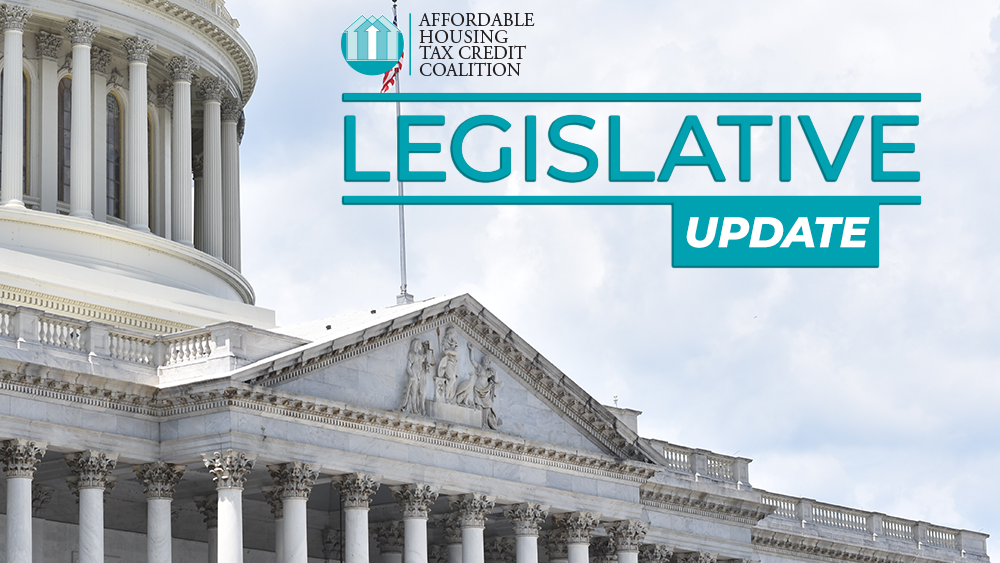Yesterday Senate Finance Committee Chairman Ron Wyden (D-OR) announced his sweeping proposal to address our nation’s affordable housing crisis, the Decent, Affordable, Safe Housing for All Act (the DASH Act) – see summary, section-by-section, and bill text. The DASH Act includes several provisions from the Affordable Housing Credit Improvement Act (AHCIA), including the key proposals that would increase affordable housing production by 2 million affordable homes over the next decade. The legislation also includes proposals to enact a Middle Income Housing Tax Credit, a Neighborhood Homes Tax Credit, a renter’s tax credit, a down payment tax credit for first-time homebuyers, to authorize additional affordable housing spending, and more.
Chairman Wyden intends to use this proposal to inform development of the housing components of an infrastructure reconciliation bill, though it is most likely that only select pieces of the proposal will be included. However it is extremely significant that significant pieces of the AHCIA are included in the DASH Act, and will serve to position these priorities more favorably for inclusion in infrastructure reconciliation legislation. It is also important to note that changes to these provisions are likely to be made before enactment, including changes to effective dates and aspects, considering the budgetary and policy limitations associated with the budget reconciliation process.
The following AHCIA provisions are included in the DASH Act, with some modifications:
- Lowering the 50 percent bond financing threshold test to 25 percent for four years
- Increasing the annual Housing Credit allocation by 50 percent, phased in over two years, and permanently extending the 12.5 percent temporary allocation increase that is currently set to expire at the end of this year
- Providing a 50 percent basis boost for developments serving extremely low-income (ELI) households and providing an additional ten percent allocation increase per state to be used as a set-aside for serving ELI households
- Providing 30 percent basis boosts for developments in rural and Native communities if needed for financial feasibility
- Allowing state allocating agencies to provide a 30 percent basis for properties financed with 4 percent credits and Housing Bonds if needed for financial feasibility
- Prohibiting local approval and contribution requirements in order to help address NIMBY issues
Several additional Housing Credit provisions are included in the DASH Act:
- Extending three deadlines for one year: the 10 percent test, placed-in-service, and rehabilitation expenditure deadlines
- Addressing “adjuster” issues that arose during the COVID-19 crisis by temporarily allowing owners to elect to receive 150 percent of the Housing Credits otherwise allowable for a building in a project’s first or second tax credit year
- Providing a 50 percent basis boost to Housing Credit developments that dedicate space to providing qualifying supportive services
- Curtailing the use of Qualified Contracts by repealing the option going forward and changing the formula that determines purchase price on existing properties
- Making several modifications to the right of first refusal (ROFR) by (i) converting the right to a purchase option for agreements entered into after passage; (ii) allowing the inclusion of partnership assets related to the building in the definition of property; (iii) allowing the option holder to exercise the right of first refusal without requiring the approval of an investor or requiring a bona fide third party offer; and (iv) changing the purchase price to only debt and not debt plus exit taxes. The changes are not intended to change any express provision in an existing agreement.
The DASH Act would also authorize several new housing tax credits and additional spending, including:
- Establishing a new Neighborhood Homes Tax Credit to incentivize the rehabilitation of vacant homes and construction of new homes in distressed communities
- Enacting a new Middle Income Housing Tax Credit, structured similar to the Low-Income Housing Tax Credit but intended to serve households between 60 and 100 percent of area median income
- Providing a refundable Renter’s Tax Credit claimable by taxpayers who own and operate affordable housing to cover the difference between 110 percent (and up to 120 percent in low poverty neighborhoods) of market rent and 30 percent of an ELI household’s gross income
- Expanding Housing Voucher availability for households experiencing or at risk of homelessness
- Authorizing $10 billion for the Housing Trust Fund
- Establishing a refundable Down Payment Tax Credit for First-Time Homebuyers



Comments are closed.